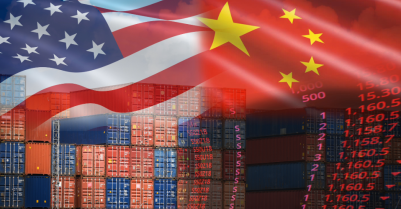-
View article
 #Economy
#EconomySouth Korea: a year after the political crisis, markets are buying the promise of stability
2025/12/17
Brexit : a new phase of intense nogotiations begins
The transition period will begin on 1 February. The UK has to negotiate and ratify its future partnership with the EU by the end of the year.

The UK will leave the EU on 31 January (at 11 pm London time). What happens now?
On 17 October, an amended version of the Withdrawal Agreement and a revised Political Declaration on the framework for the future relationship between the United Kingdom and the EU were agreed. On 22 October, the UK House of Commons approved the second reading of the EU Withdrawal Agreement Bill. According to those documents, the future trade relationship with the EU will be a deep free trade agreement (FTA), the terms of which are to be negotiated during the transition period. This period begins on 1 February and ends on December 31, 2020 unless extended.
Boris Johnson refuses any extension of the transition which can in theory be requested before 1 July for one or two years. During the transition, the United Kingdom has a third country status vis-à-vis the EU and no longer has a say in its decision-making, no longer has representatives in the European institutions but retains its access to the single market as a full member country of the EU and has to pay a contribution to the EU budget.
The early general elections of 12 December were a risky gamble on the part of Boris Johnson but his slogan "Get Brexit done" finally gave him a great success as the population was tired of more than three years of parliamentary dithering on Brexit. The Conservative party obtained an overwhelming victory over Labor (365 seats obtained out of a total of 650, the best result since Margaret Thatcher since 1987, against 202 for Labor). The Conservative party now has a large majority in the House of Commons, which gives it great solidity for the years to come. After all of the knife-edge parliamentary votes in 2019, the Brexit Withdrawal Bill was passed without incident by a majority of 99 on 9 January 2020.
While the early elections have put an end to internal political instability, there is a lot of uncertainty about the future relationship with the EU.
Negotiations on the future relationship will probably not start before March 2020. Firstly, the European Commission and the British government must each publish a mandate containing their objectives and the sequencing of the negotiations with a view to their final approval at the March European Council (26 and 27). Beforehand, the British government must have its mandate validated by the British Parliament.
The negotiations will focus on the future trade agreement (FTA) with a view to its entry into force on 1 January 2021. The objectives of the Political Declaration provide for the absence of tariff barriers on trade in goods (no customs duties, quotas, fees, charges or quantitative restrictions). However, the move to a FTA would mean that customs, rules of origin and some regulatory checks between the UK and the EU are introduced. Regulatory barriers are likely to prevent the cross-border provision of services. Currently the regulations are the same between the EU and the UK, which would allow equivalence regimes to be put in place in certain sectors (such as financial services), but over time they are likely to diverge. Even if clauses of level-playing field have been included in the Political Declaration to avoid unfair competition practices, UK regulations, such as product standards, norms and taxation can gradually diverge creating barriers to free trade and adding costs to companies.
The trade agreement is only part of the future partnership. The negotiations must also cover other aspects such as foreign policy, security, energy, digital, data sharing, intellectual property, nuclear, transport, mobility of capital and people, etc. The extremely short time will constrain the scope and depth of the agreement. It also implies a significant risk of a no-trade deal Brexit at the end of the year.
Études Économiques Groupe / Slavena Nazarova








